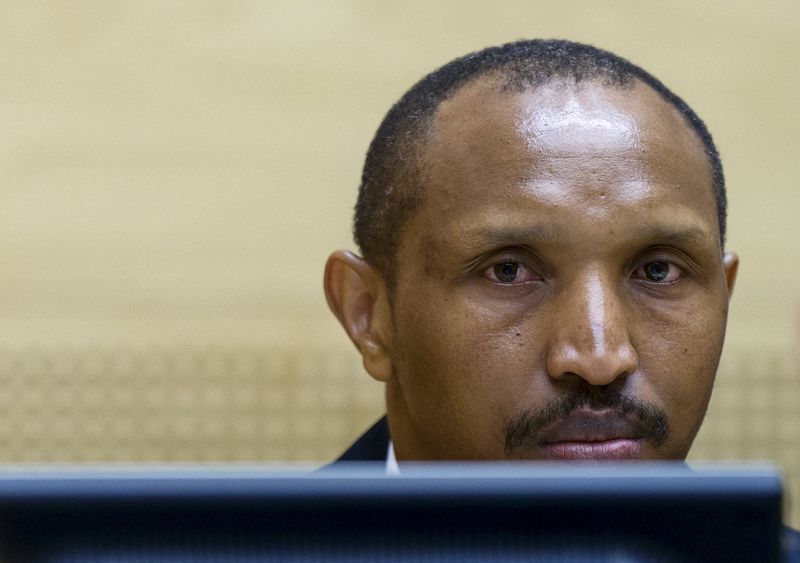By Thomas Escritt
THE HAGUE (Reuters) - Militia leader Bosco Ntaganda, on trial in The Hague on charges of orchestrating rape and murder in a conflict in northeast Congo in the early 2000s, said he was a "revolutionary rebel" trying to restore peace in the province.
Accounts of rape and massacres during the fighting have dominated the first two days of his trial, with prosecutors saying Ntaganda gathered a guerrilla army to strengthen his allies and corner the region's mineral resources for himself.
But Ntaganda, who began his military career fighting alongside Tutsi forces in Rwanda in 1994 that brought to an end that country's genocide, said his Union of Congolese Patriots (UPC) army attempted to protect civilians of all ethnicities.
"The word had gone out to kill all Tutsis in Ituri, or those who looked like them," he said, rising to address judges in the wood-panelled courtroom at the end of the second day of his trial.
"I ask you to make a distinction between a revolutionary rebel and a criminal," he told judges. "I am not a criminal."
Earlier, a lawyer for victims had described how girls as young as 12 were forced to serve as "wives" to senior officers in the UPC or were forced to be sexually available to soldiers.
Prosecutors say Ntaganda let ethnic Hema troops under his command rape and massacre ethnic Lendu civilians who lived on land rich in oil, diamonds and gold which he wanted for himself. They also accuse him of raping child soldiers.
One 13-year-old said falling pregnant with the child of a senior commander was a "relief" from the daily round of sexual favours she otherwise had to offer fighters, the victims' lawyer said.
But his lawyers said he was a disciplined and highly professional soldier who had protected civilians from other militias during a power vacuum in the country that followed the 1997 toppling of President Mobutu Seke Seso.
Before he gave himself up in 2013 after seven years on the run, Ntaganda fought for 15 years in wars that killed some 5 million people in the Democratic Republic of Congo over the past two decades.
U.N. experts have said the M23 rebels he fought alongside were backed by Rwanda, a charge Kigali has always denied.

Born in Rwanda but raised in Congo, he began his military career alongside Tutsi rebels who seized control of Rwanda in 1994, bringing to an end the genocide in which 800,000 died.